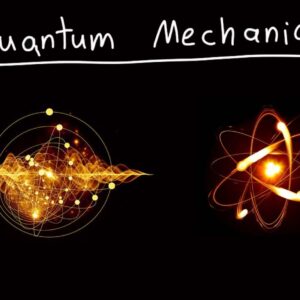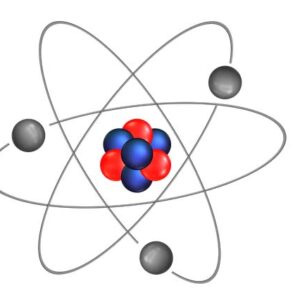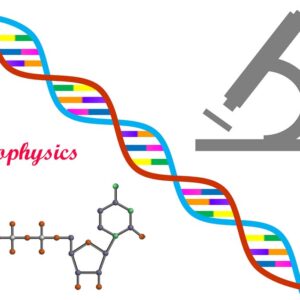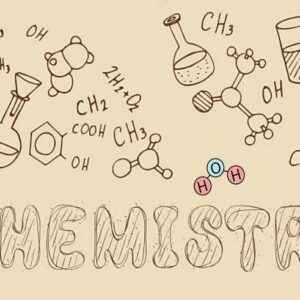
The area of chemistry that examines the characteristics and behaviour of atomic nuclei is known as nuclear chemistry. It includes research on nuclear processes’ energy release as well as the actions and interactions of subatomic particles.
In nuclear chemistry some important topics to research include:
- Nuclear reactions: The study of the reactions that take place when protons and neutrons attack the nuclei of atoms.
- Radioactivity: the study of radioactive particle and energy emission as a result of unstable nuclei decaying.
- Nuclear fission and fusion: This field of study examines how nuclei are divided or fused to produce enormous amounts of energy.
- Nuclear spectroscopy: The study of atomic nuclei’s energy levels and transitions which reveal details about the nucleus’s composition and characteristics.
- Nuclear forensics: The use of nuclear chemistry methods to identify nuclear proliferation and track the provenance of nuclear items.
- Nuclear medicine: The application of radioactive isotopes and other nuclear techniques for the imaging and therapy of cancer, among other medical diagnoses and treatments.
- Nuclear power and energy: The study of nuclear energy and electricity, include the construction and security of nuclear power plants as well as the management and radioactive waste disposal.
- Nuclear materials and waste management: The management of nuclear materials and waste including the processing, storage and disposal of radioactive waste in a safe manner, is the study of the characteristics and behaviour of nuclear materials.
- Nuclear chemistry in space: The study of how atomic nuclei behave, the effects of radiation in space and how these things relate to the hunt for extraterrestrial life.
- Nuclear chemistry in industry: The study of how nuclear chemistry methods are applied in industrial processes such as sterilising medical equipment and irradiating food.
- Nuclear chemistry of the environment: The study of how nuclear processes and radioactivity affect the environment including how radioactive isotopes are transported through the air, water and soil, how they affect wildlife and how they affect people’s health.
- Ocean nuclear chemistry: the investigation of radioactive isotope behaviour in the oceans and its effects on marine life and ocean chemistry.
- Nuclear chemistry of the atmosphere: the investigation of radioactive isotope behaviour in the atmosphere and its effects on atmospheric chemistry and air quality.
- Nuclear chemistry of the geosphere: the investigation of radioactive isotope behaviour in the Earth’s crust and its effects on soil chemistry and geology.
- Nuclear chemistry of the biosphere: The study of radioactive isotope behaviour in living things and how it affects biology and ecology is known as nuclear chemistry of the biosphere.
- Nuclear chemistry of nuclear weapons: The study of nuclear weapons’ development, design and use, as well as the impacts of nuclear explosions on the environment and public health.
- Nuclear chemistry of nuclear nonproliferation: The investigation of strategies for halting the spread of nuclear weapons and the application of nuclear chemistry methods to identify and stop nuclear proliferation
- Nuclear chemistry in archaeology and anthropology: The use of nuclear chemistry in anthropology and archaeology to date artefacts and human remains as well as research earlier human cultures and communities.
- Nuclear chemistry in materials science: The investigation of radioactive isotope behaviour in various materials and the application of nuclear methods to the investigation of material characteristics and behaviour
- The use of nuclear chemistry in education: Nuclear chemistry is used to teach basic chemistry and physics concepts and to inform the public about the advantages and dangers of nuclear technology.
- Nuclear chemistry of the nuclear fuel cycle: The investigation of the nuclear fuel cycle which covers the gathering, enrichment and reprocess of radioactive fuel as well as the disposal of nuclear waste.
- Nuclear chemistry of nuclear safety and security: The study of nuclear facilities’ safety and security, including nuclear power plant design and construction, nuclear material transport and defence against terrorist and cyber threats.
- Nuclear chemistry of nuclear fuel performance: The analysis of how nuclear fuels behave under various circumstances such as normal and abnormal operating setting, the interaction of the fuel with the cladding and accident-related circumstances.
- Nuclear chemistry of actinides: Actinides are elements in the periodic table with atomic numbers range from 89 to 103. Actinides’ nuclear chemistry is the study of their characteristics and behaviour.
- Nuclear chemistry of nuclear data: The investigation of nuclear data collecting and analysis, including the measurement and assessment of nuclear cross-sections, decay data and other nuclear properties.
- Nuclear chemistry of nuclear transmutation: The investigation of how nuclear processes might change one element into another, potentially lowering the quantity and toxicity of nuclear waste.
- Nuclear chemistry and nuclear astrophysics: the research of atomic behaviour and nuclear processes in stars and other celestial objects.
- Nuclear chemistry of nuclear-renewable energy systems: This field of study examines how nuclear energy can be used with renewable energy sources like solar and wind to increase the overall sustainability and efficiency of energy systems.
- Nuclear chemistry of nuclear fuel development: This field of study focuses on the creation of novel nuclear fuels with enhanced characteristics and performance, such as high-burn-up, high-density fuels and accident-tolerant fuels.
- Nuclear chemistry of nuclear energy in developing countries: The study of the unique difficulties faced by developing nations in the development and use of nuclear energy, including limited resources for nuclear safety and security, limited access to nuclear expertise and limit resources for managing nuclear waste.
- Nuclear chemistry of nuclear data libraries: The study of nuclear data libraries’ creation and upkeep which offer a variety of information about atomic nuclei’s characteristics and the interactions of subatomic particles.
- Nuclear chemistry of nuclear materials characterisation: The investigation of nuclear materials’ characterization, include evaluation of their chemical and physical characteristics, isotopic content and microstructure.
- Nuclear chemistry of radiation protection: The study of shielding people and the environment from ionising radiation’s negative effects, including the creation of radiation protection guidelines and the estimation of radiation exposure.
- Nuclear chemistry of nuclear decay: The study of how atomic nuclei decay, including the many types of decay, their rates and the characteristics of the particles and radiation they generate.
- Nuclear chemistry of nuclear data evaluation: The study of nuclear data evaluation and validation, including the application of experimental data to increase the precision of nuclear models and codes
- Nuclear chemistry of nuclear instrumentation: The study of the creation and application of nuclear instrumentation, such as detectors, spectrometers and other devices used to gauge and assess atomic nuclei’s characteristics and the interactions of subatomic particles.
- Nuclear chemistry of nuclear history: The investigation of the development of nuclear weapons, the discovery of radioactivity and the application of nuclear science and technology to the fields of industry, medicine and energy production.
- Nuclear chemistry and nuclear materials science: the study of how nuclear materials behave under various conditions, such as high temperatures, high pressures and high radiation levels, as well as the application of nuclear techniques to the investigation of the composition and behaviour of materials.
- Nuclear chemistry of nuclear analytical techniques: The investigation of the many analytical methods employed in nuclear chemistry, including X-ray diffraction, neutron activation analysis, mass spectrometry and gamma spectroscopy.
- Nuclear chemistry in interdisciplinary areas: Using nuclear chemistry methods to research the characteristics and behaviour of materials and the environment in interdisciplinary subjects like geology, archaeology and environmental science.









